My shopping cart
Your cart is currently empty.
Continue ShoppingLooking for the standard sliding glass door sizes? The common height for these doors is 80 inches, while widths range from 60 to 72 inches. These standard dimensions fit most door openings and help you plan your home improvements effectively. This guide covers the sizes and considerations for two-panel, three-panel, and four-panel sliding glass doors, helping you choose the right panel sliding glass door for your needs.
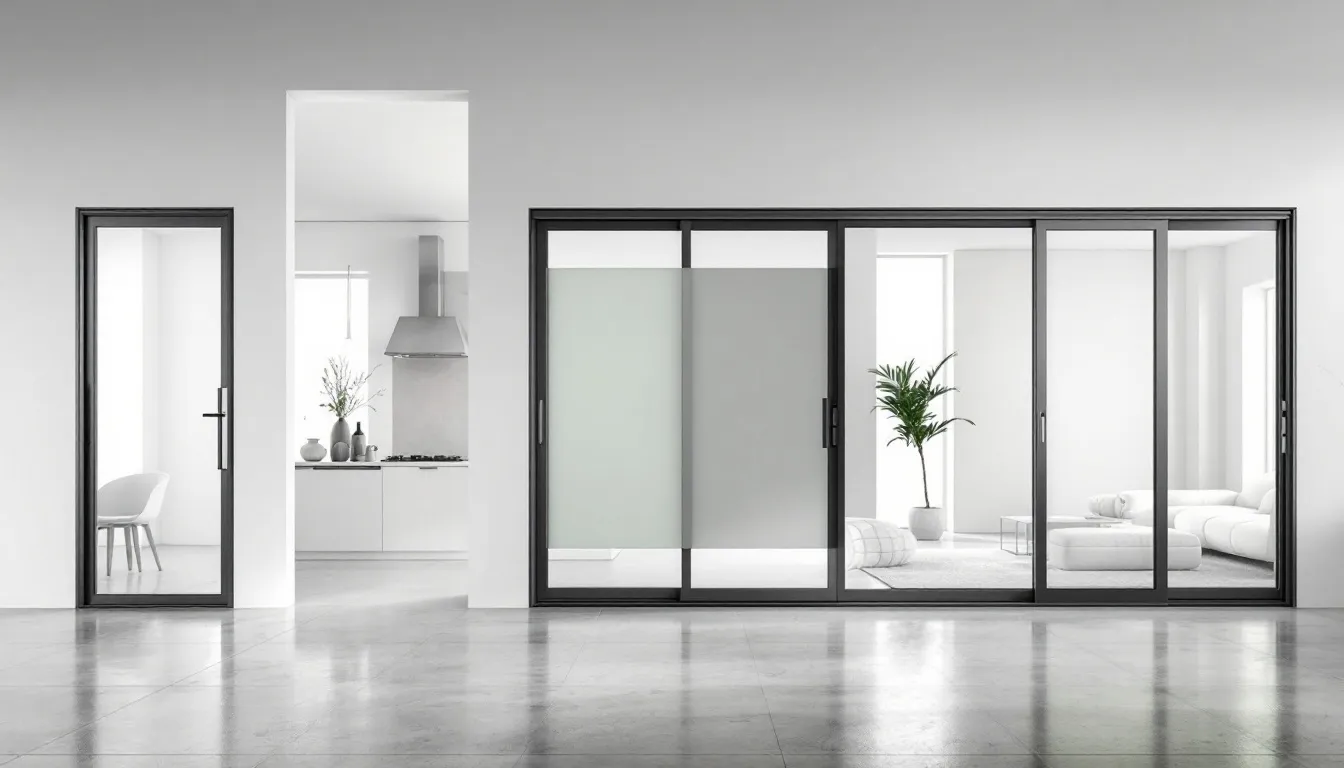
Sliding doors, particularly sliding glass doors, come in a variety of standard sizes, making them a versatile choice for various architectural styles and room dimensions. The most common height for these doors is 80 inches, with widths ranging from 60 to 72 inches or more, depending on the space available. These sliding glass door dimensions are designed to fit most standard door openings and provide a good balance of functionality and visual appeal.
Selecting the right size for your sliding glass door ensures a perfect fit, whether it’s a new installation or a replacement. Below, we detail two-panel, three-panel, and four-panel sliding glass doors, highlighting their distinct benefits and uses.
Two-panel sliding glass doors are among the most popular choices for homeowners due to their simplicity and effectiveness. These doors typically have a standard height of 80 inches and come in common widths of 60 inches (5 feet) and 72 inches (6 feet). Their design includes one fixed glass panel and one sliding panel, which glides smoothly along a track to open and close.
Ideal for smaller spaces, two-panel sliding glass doors offer ample sunlight and easy access to outdoor areas. They are perfect for patios, balconies, and verandas, providing a seamless connection between indoor and outdoor living spaces. Additionally, the inclusion of a sliding glass window can complement the design and functionality of these doors.
Three-panel sliding glass doors are designed for larger openings, offering a grander entrance and more expansive views. Commonly available in widths of 9 feet or 12 feet, these doors can accommodate wider patio or deck openings. The design usually includes two fixed panels and one sliding panel, though custom configurations are also available to suit specific needs. Sliding patio door sizes are crucial to consider for both aesthetic requirements and cost implications, with larger sizes typically incurring higher costs due to increased material use.
These doors are perfect for creating a panoramic view and enhancing the aesthetic appeal of your home. They allow for a seamless transition between indoor and outdoor spaces, making them a popular choice for homeowners looking to maximize their living area.
Four-panel sliding glass doors provide a modern and luxurious solution for expansive patios or larger residences. These doors are typically available in heights ranging from 80 to 96 inches, providing a floor-to-ceiling design that maximizes views and natural light.
Four-panel sliding glass doors often feature two fixed panels and two sliding panels, allowing for a wide opening that enhances indoor-outdoor living. These sliding door create a stunning visual impact, bringing the great outdoors into your living space with a sliding glass panel.
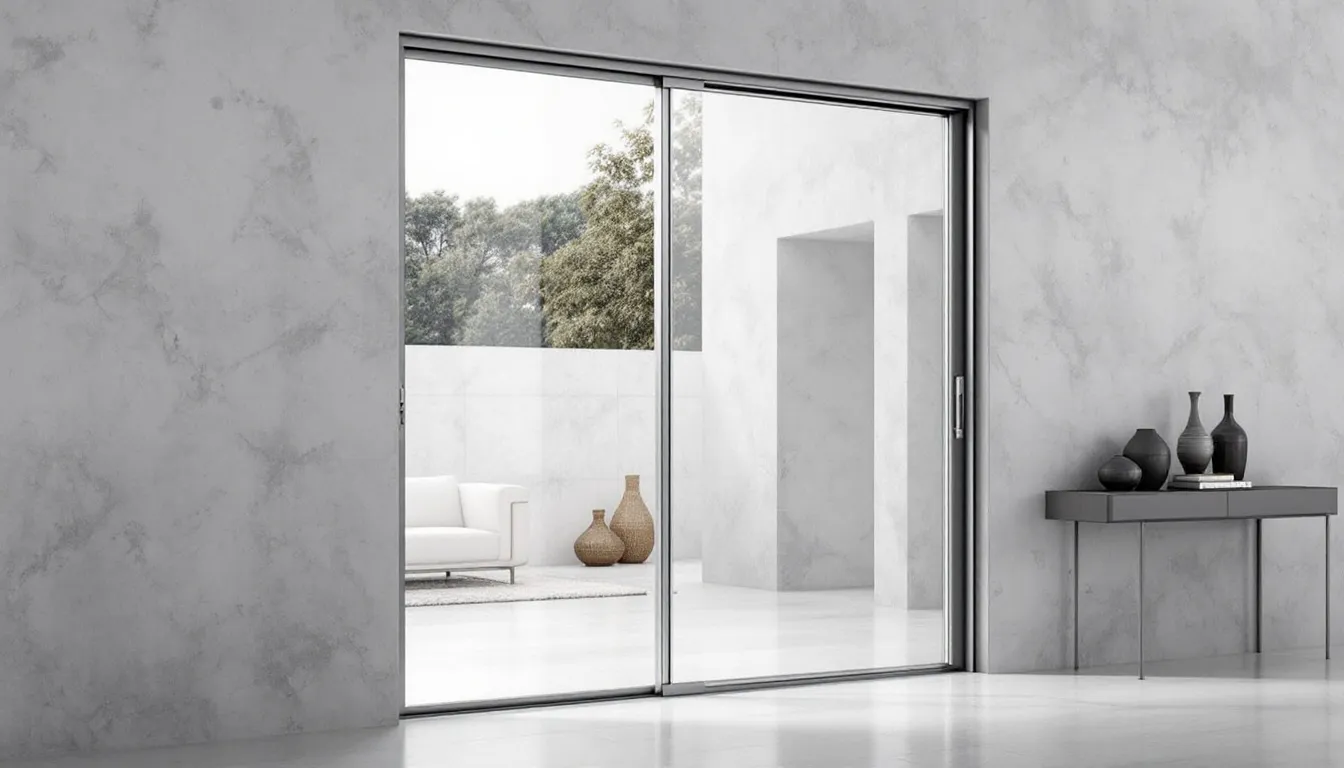
While standard sliding glass door sizes fit many applications, there are times when custom solutions are necessary. Custom sliding glass doors are ideal for unique architectural designs, irregular wall dimensions, or specific aesthetic preferences. They offer the flexibility to create doors that perfectly match your space and style. Sliding glass patio doors come in various types, with options depending on the number of panels, providing benefits like increased natural light and improved outdoor views.
Customization options include a variety of glass panel sizes, frame materials, and design configurations to suit your needs. A sliding door specialist can help you select, install, repair, or replace custom sliding glass doors to ensure a perfect fit and optimal performance.
Custom sliding glass doors are particularly useful when dealing with non-standard spaces. If your home has irregular wall dimensions or you’re working on a remodeling project that requires specific door sizes, custom doors provide the perfect solution. Sliding patio door sizes are crucial to consider, as choosing the right size can impact both the aesthetics and cost.
Large patio areas in upscale homes also benefit from custom sliding glass doors and sliding patio door options, offering the flexibility to design sliding patio doors that enhance the overall aesthetics and functionality of the space.
Sliding glass doors can be customized to fit unique spaces. Options include different frame materials such as wood, aluminum, and fiberglass, each offering distinct advantages in terms of durability, maintenance, and appearance. A glass sliding door can enhance the aesthetic appeal of your home while providing functionality. Sliding door manufacturers offer a variety of choices to suit your needs.
Additionally, custom glass solutions can include various glass types and thicknesses, allowing for enhanced energy efficiency, soundproofing, or specific design features. These bespoke options provide an affordable way to achieve the perfect look and functionality for your home.
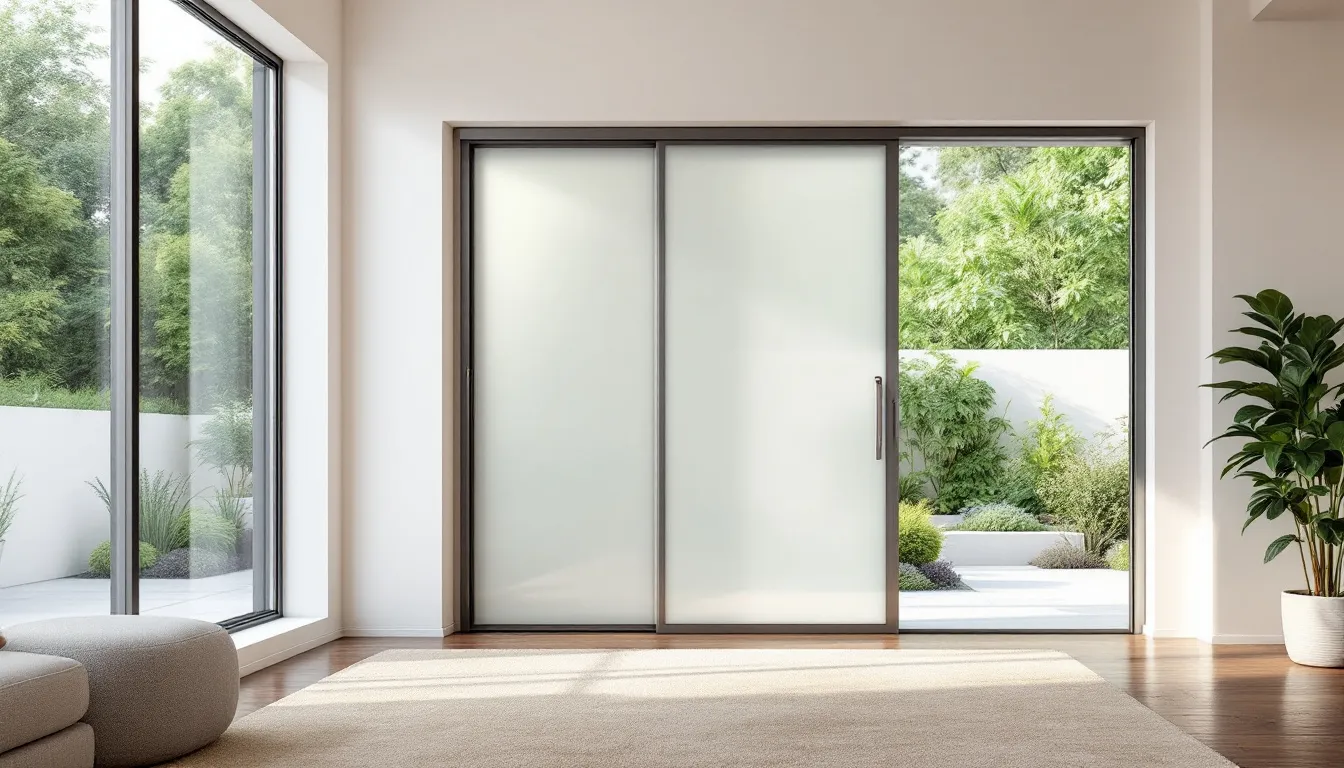
Selecting the right sliding doors involves more than just picking a size. Several key factors influence how well your door fits and functions. These include the door frame size, wall thickness, and material selection.
Understanding these factors helps you choose a door that meets your aesthetic and functional needs while ensuring smooth installation and long-lasting performance.
The door frame size is crucial because it determines the required overall dimensions for your sliding glass door. Matching the door frame size to the available space helps avoid installation issues and ensures a proper fit.
If modifications are necessary, accounting for these adjustments ensures the sliding glass door fits seamlessly into the existing structure.
Another important consideration is wall thickness. The wall must be thick enough to support the door frame and ensure a tight fit, preventing air leaks and enhancing energy efficiency. Adequate wall thickness also enhances the door’s overall stability and performance.
Material choice significantly impacts the sliding glass door’s durability, maintenance, and overall cost. Fiberglass, steel, and aluminum are common materials for door frames, each with unique benefits and drawbacks.
Tempered glass is recommended for its strength and safety, while soundproof or hurricane-proof glass can be considered for specific needs. Low-e glass improves energy efficiency, making your home more comfortable and reducing energy costs.
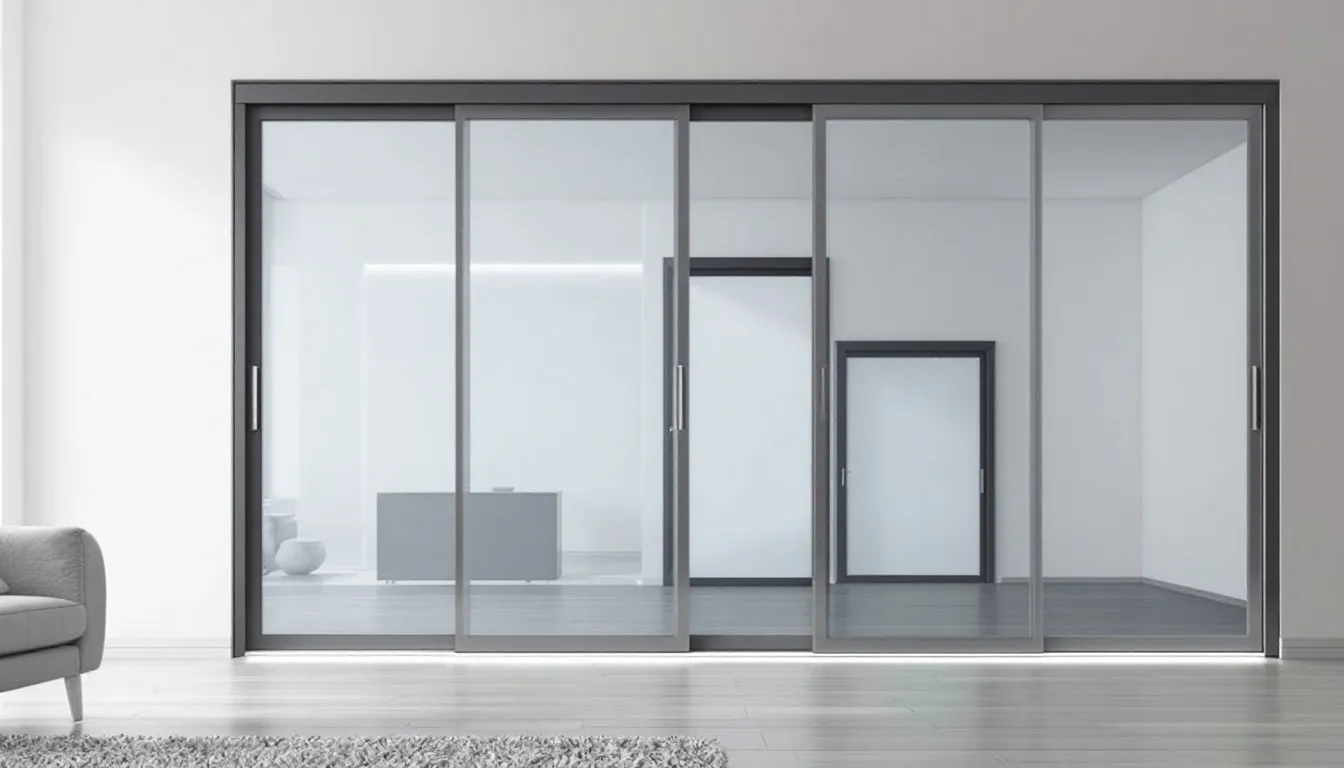
Sliding glass door size significantly affects its cost. Standard-sized doors are generally more economical, as they are mass-produced and readily available. In contrast, custom sizes require additional materials and specialized labor, which can drive up the overall cost. Sliding patio door sizes also play a crucial role in customization and pricing, with larger sizes typically incurring higher costs due to increased material use.
Selecting the right size and features balances cost with functionality and aesthetic appeal.
Standard-sized sliding glass doors are typically more affordable than custom options. For example, a standard two-panel door can range from $400 to $1,500, making it a cost-effective choice for many homeowners.
Custom doors, on the other hand, tend to be more expensive due to the additional materials and specialized labor required. Three-panel doors, which often come in widths of 9 or 12 feet, are also more costly than standard two-panel doors.
Upgrading your sliding glass doors with features like impact-resistant glass or double pane glass can enhance their performance but also increase the cost. Impact-resistant glass can add $300 to $500 per panel, while double pane glass improves energy efficiency and reduces heating and cooling costs over time.
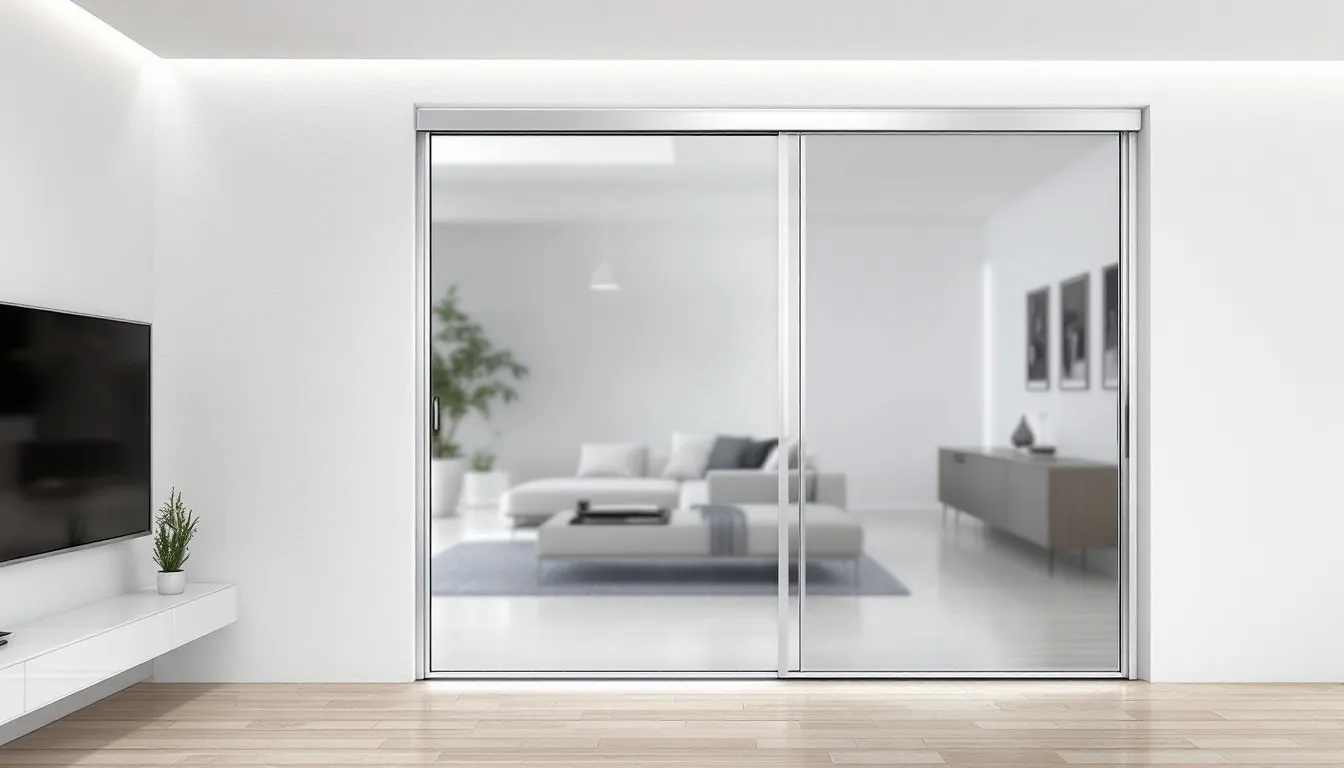
Accurate measurement and professional installation ensure your sliding glass door fits perfectly and operates smoothly. Properly measuring your space can prevent costly mistakes and ensure seamless installation.
Check both the top and bottom of the opening for accuracy when measuring for a sliding glass door. Measuring the width at its midpoint provides a more precise reading.
Accurate measurement ensures the door fits properly and functions as intended.
Hiring a professional for installation is highly recommended. Professional installers can avoid common pitfalls and ensure a secure fit, enhancing your door’s longevity and performance.
Companies like Mr. Handyman offer quality installation services, ensuring correct and efficient installation.
Choosing the right sliding glass door involves understanding the available sizes, the benefits of custom solutions, and the key factors that affect installation and performance. Standard sliding glass doors are often more economical, while custom options provide the flexibility to fit unique spaces and design preferences.
Accurate measurement and professional installation are essential for ensuring your sliding glass door operates smoothly and enhances the overall aesthetic of your home. By considering these factors, you can select the perfect sliding glass door that meets your needs and elevates your living space.
Standard sliding glass doors are typically 80 inches tall, with widths that usually range from 60 to 72 inches or more. If you're planning a project, keep these dimensions in mind!
You should consider custom sliding glass doors if you have unique architectural features or irregular wall dimensions that standard doors can't accommodate. They can also be perfect for large patio spaces to enhance your home's style and functionality.
Wall thickness directly impacts the installation of sliding glass doors by ensuring a snug fit that minimizes air leaks and boosts energy efficiency. A proper fit is key for smooth functionality and optimal performance.
Absolutely, custom-sized sliding glass doors usually cost more because they need extra materials and specialized labor to make. It's a worthwhile investment if you need that perfect fit, but be ready for the extra cost!
Professional installation is recommended for sliding glass doors because it guarantees a secure fit, which helps avoid issues and boosts the door's longevity and performance. You want it done right the first time, after all!